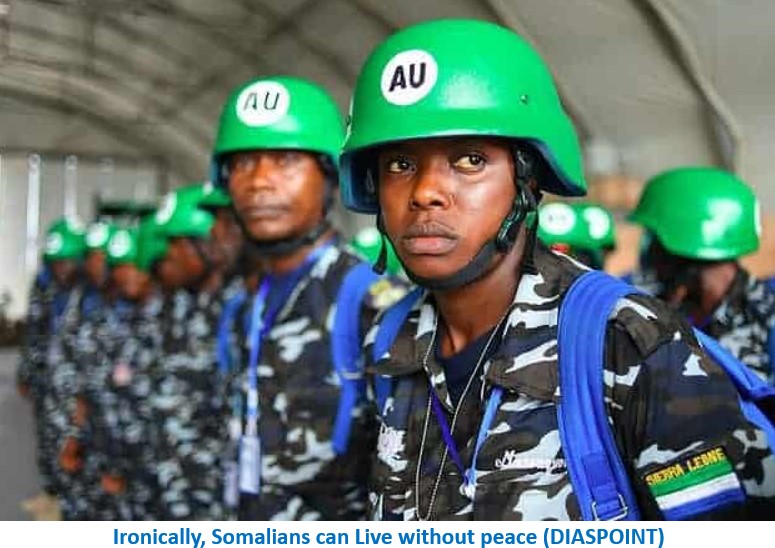AU peacekeepers are leaving Somalia: what needs to happen to keep the peace
Post By Diaspoint | September 15, 2023

The phased withdrawal of the African Union Transition Mission in Somalia (Atmis) began earlier this year and is scheduled to end in December 2024.
The withdrawal of African Union (AU) peacekeepers poses risks for Somalia. For one, it may reduce the pressure on al-Shabaab at a crucial time during the Somali government’s latest offensive. These risks cannot be completely eliminated but there are important steps the Somali authorities and the AU must take before the mission’s exit.
The withdrawal of the AU troops hands a battlefield and propaganda advantage to al-Shabaab. Beyond that, it reduces support for Somali forces trying to wage an offensive. There is also a risk that Somali forces garrisoned in former AU operating bases might be particularly vulnerable to al-Shabaab attack.
The AU Mission in Somalia arrived in Mogadishu in March 2007, eventually growing to a force of over 22,000 personnel by 2014. From December 2017, the force was gradually downsized. In 2022 it was renamed a transitional force, a signal that the AU was entering the last phase of its military deployment in Somalia.
A weekly email for Europeans by European scholars
In the next drawdown phase, 3,000 out of 17,500 peacekeepers should depart by the end of September.
To ensure a smooth departure, the Somali authorities and AU forces must accomplish several key tasks. Somalia must reform and strengthen its internal security. The AU must coordinate with Somali forces and partner with the United Nations to handle the difficult logistics of the exiting troops. If they both succeed, then it’s worth speculating about what is likely to happen after the AU peacekeepers leave.
Somalia’s key tasks
For the Somali authorities, the key political challenge is to finalise the structure of their national security architecture. This has been stuck in draft form since 2017 and was recently revised. It is crucial that the type and numbers of forces, as well as command and control, and financial relationships are clear and agreeable to both the federal government and federal member states. It will be impossible to conduct successful offensive campaigns unless the Somali federal and regional authorities are on the same page.
Read More from original source
